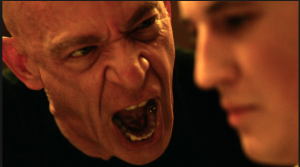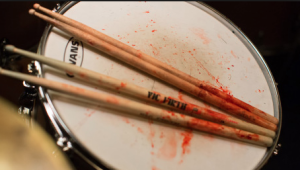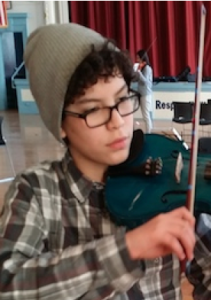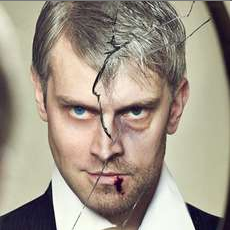Jennifer Fraser's Blog: How I Became an Unlikely Whistleblower, page 7
December 5, 2015
Review of Teaching Bullies by Psychology Professor
August 28, 2015
Dr. Fraser presents a series of case studies considering bullying by teachers, coaches, and peers. Creating a childhood free from authority figures who are intimidating, creating trauma, and discouraging is her primary goal. She presents a compelling and readable account of exactly the type of trauma created by harsh teaching and abusive coaching tactics. I hope that her message is accepted by all--to be an academic or athletic success high standards are required, but abuse is not necessary and is counter productive in both the short and long term. Supportive coaches are winning coaches. Supportive teachers are successful teachers. The culture of teaching and coaching needs to change and Dr. Fraser has created a compelling case for change.
Teaching Bullies Must Read for Parents, Schools and Lawmakers
Teaching Bullies tackles subject matter that NEEDS to be discussed by parents, schools and ultimately lawmakers.
By Kathryn Slakov on October 14, 2015
The author explores the power teachers and coaches have over our youth and the damage that can be done when that power is abused. Emotional or verbal abuse is hard for anyone to fend off but children are particularly vulnerable and as such need to be more protected by society. The author makes this issue tangible for the reader by using her own personal experiences both as a teacher and as a parent. She tells the story of how ongoing verbal abuse endured by high school athletes (and her own son) at the school where she herself was a teacher was dismissed despite the concerted efforts of parents and in particular 14 courageous student-athletes who came forward to document their experiences. Teaching Bullies, well researched but still very accessible, explores the vulnerability of the adolescent brain and the permanent damage that this type of abuse can lead to .
Having personally experienced (from my own teenage years) the negative power and influence teachers can have over their students and the resulting scars that can be left I highly recommend this book and hope it initiates greater awareness and in the end positive change to the justice system.
Heart-Breaking Review of Teaching Bullies
By Amazon Customer on November 17, 2015
I had to stop reading after the first chapter. I had tears welling up in my eyes remembering what my youngest son had to go through. Being verbal abused/degraded with other basketball players and being denied an opportunity to compete for junior varsity; a right he and others earned. Hearing parent feared retaliation against their kids if they complain. Seeing and experiencing the walls of silence and protection go up. As a parent being denied access to people to report this abuse. Sitting in front of the athletic director as he said the worse things about my son. Feeling helpless and realizing the parents were right about retaliation. Knowing that there were adults who were willing to hurt my son for voicing concerns about abuse. Realizing how many parents and teachers were willing to look the other way. This happen in 1998/1999. Jennifer's book is talking and identifying teacher bullies/abuse that has been around for years. This book should be reading for all parents whose children play sports. All teachers need to read to be part of the solution not part of the cover up. Coaches should read it to remember who they are coaching and why they are coaching. Jennifer talks about the psychological and physiology effects of bullying and abuse on young men and boys. Her book is must read and should inspire all of us to fight bullying and abuses in our school and playing fields.
Review of Teaching Bullies
Building better and more accountable models throughout many of our schools
l
ByJane Hutton on October 22, 2015
Jennifer's well-researched approach and personal truth about this critically important topic creates a powerful story, The book is both an academically rigorous document, as well as a tale of family and professional courage. Through specific and heart-wrenching experiences, she makes a strong case and an impassioned plea for action. I hope we all hear the message, building better and more accountable models throughout many of our school, civic and judicial systems, protecting our children as the highest guiding principle. I thank Jennifer and her family for standing up and speaking out!
August 26, 2015
Whiplash: Drum Solo versus Suicide
In the movie Whiplash, is the abusive music teacher, Terence Fletcher, an exaggeration or do teachers actually behave this way?
Sadly, he’s not an exaggeration; he’s all too real.
Director, Damien Chazelle drew on his own high-school experience with a bullying music teacher in order to explore students’ experiences of fear and anxiety. He told J. K. Simmons, who played Terence Fletcher and won an Academy Award for his performance: “I don’t want to see a human being on-screen anymore. I want to see a monster, a gargoyle, an animal.” His directive is interesting as we tend to talk about how bullies dehumanize their victims, but here Chazelle reminds us that this kind of bullying conduct can’t be described with words associated with humanity.
I recently resigned from a school that continues to employ multiple teachers who, according to student reports, bullied them like Terence Fletcher. School administrators knew about the teachers’ conduct. Just like the universities we’ve all heard about in the last few years have had administrators aware of coaches who behave like Terence Fletcher.
When a Director of a School or a Headmaster hears from multiple parents, teachers, and students that a teacher is yelling, berating, demeaning, throwing objects, and hurting students, you would expect students to be protected, but it didn’t happen at the school I worked at. Even after a two year investigation by the Commissioner for Teacher Regulation, this teacher conduct was approved of and the Commissioner locked down his reports so that students who testified against the teachers were not allowed to read them. Comparably, despite administrative knowledge and sometimes even extensive investigations, abusive university coaches are also kept on as has been widely discussed in the news in past years [2]. This is why Whiplash is such an interesting film. It gets to the dark heart of what some people really believe about education, performance and greatness.
The film has been critiqued for suggesting that relentless practice under abusive conditions produces greatness, but my sense is that’s not what the film’s promoting. Whiplash is holding the mirror up to a society that all to often condones educators who bully. Lots of people don’t want to look in that mirror.
The truth is that some excuse abuse in schools and universities because they believe it inspires excellence. They explain their approval of screaming, insulting, humiliating, raging teacher conduct with phrases like “tough-love” and “rigorous” or “demanding.” Even the victims repeatedly exposed to such conduct become brainwashed into believing it will make them great and that it comes from a passionate intensity for sport or music or theatre. Those who approve argue that these kinds of teachers will train soft students to toughen up for a harsh world; abuse will teach them discipline and commitment. They believe that it’s for their own good.
This kind of thinking may be why university administrators look the other way when coaches abuse players because they think the abuse gets results: the swim team has a good year or the basketball team wins a lot of games. Parents don’t pull their children from high-school music programs because their kids’ suffering is forgotten when the teacher puts on a wonderful show and gives students’ opportunities to take their art to the next level. We even get confused enough to think that the abuse probably isn’t all that bad because if the performance is great then the methods must be great too or at least good.
Whiplash offers both belief options to its audience. It puts at the core of the film the suicide of Sean Casey, one of Fletcher’s abuse victims and balances it with a spectacular drum solo by Andrew Neiman another of the bullying teacher’s targets and leaves us to decide: is it okay to destroy one student if another responds to the abuse with an exceptional performance? I mean don’t we all believe that greatness comes from blood, sweat and tears?
The hard-work that produces sweat is key to achievement in any field, but the sweat that comes from fear and anxiety have no place in a learning environment. Tears that fall from pushing oneself to a limit are meaningful, but tears that fall from humiliation or emotional and physical pain, done to a student by a teacher, have no place in education. And blood that courses through the body and brain when one trains is vital for excelling at any sport or art, but blood that seeps out of an individual being bullied is never healthy or acceptable.
Damien Chazelle has Andrew Neiman practice his drums until he bleeds.
In Vulture, Julliard’s Mark Sherman gives an insider’s point of view on Whiplash’s abusive teacher and music school. He says that if a teacher behaved that way at Julliard, they would be fired. That’s different from Director Damien Chazelle’s high-school, my former school and from multiple university athletics programs, but good to hear it’s different at Julliard. He also commented on Andrew Neiman’s blood on the drum set: “That’s unrealistic,” Sherman says. “People don’t draw blood like that, playing music. It just doesn’t happen, and if you do, you’re holding the sticks wrong. You’re screwed up technically if you’re drawing blood. I’ve never seen anyone draw blood” [1].
What’s fascinating about Sherman’s comment is exactly why Whiplash is so powerful in terms of making us explore bullying in education. When a student is bullied by a teacher in real life, there is no blood. The emotional wounds, the scars on the brain, can’t be seen. That’s why it so often goes unchecked and excused. We are a primitive society that needs to see blood to understand damage is being done. Movies can make us see metaphorical things so we can understand in a more complex way. When we hear that drum solo at the end, we can’t help but remember the student is bleeding. How much blood loss does it take before someone dies? How much metaphorical blood did Sean Casey leave on his instrument before he hung himself?
Julliard’s Mark Sherman takes his reaction to the student’s blood on the drum set one step farther and faults the victim: if a student leaves blood on the drum set, it’s because he’s “screwed up.” This is a classic response to bullying. Instead of holding the bully accountable, a reversal takes place and the victim suddenly becomes the one at fault: too sensitive, too weak, too soft, not a real musician, not a committed athlete and so on.
So we are left to decide and debate: does Andrew’s drum solo cancel out Sean’s suicide? Does it make it okay? I mean the student really gets good at drumming in an abusive program. Sure the bullied student hangs himself, but come on, isn’t it erased by the teacher’s love of jazz and his desire to push his students to the next level? Some people might just believe this, but Chazelle makes it difficult with the blood on the drum kit.
One final image I’d like to leave you with is violinist David France’s Roxbury Youth Orchestra [3].
France calls his “school” a Revolution of Hope, but just because it is grounded in hope—not despair—does not for a minute mean it isn’t rigorous. Students practice for three hoursfive days a week. Their progress is considered mind-blowing, but none of the students to date have committed suicide. They don’t bleed when they play their instruments.
Notes
[1] J.J. Duncan, “6 Deep Thoughts About Whiplash: From Charlie Parker to bloody drums to the most co-dependent movie relationship of the year, let’s dig in,” Beyond the Box Office, February 2015. http://www.zimbio.com/Beyond+the+Box+Office/articles/QcJ5QPAzECX/6+Deep+Thoughts+About+Whiplash
[2] See articles on Greg Winslow, Shann Hart, Mike Rice, Jerry Sandusky, Jae Su Chun.
[3] Robyn Day, “The Roxbury Youth Orchestra Brings Its Revolution Of Hope To The MFA,” The Artery, June 2014. http://artery.wbur.org/2014/06/17/revolution-of-hope


August 17, 2015
Teaching Children to say “No” to Emotional Abuse Even In Sports
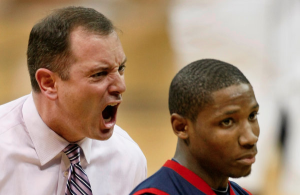 Teachers, coaches and adults in general are confident, maybe even self-righteous, about judging children and advising them on how to be better. Generally, adults are secure in the knowledge that because we have been on the planet longer, we are automatically entitled. We’re wiser, stronger and therefore clearly in a position to evaluate, judge and recommend. Some of us may even feel that displays of outraged disappointment and disgust at children’s mistakes, false steps, and failures are necessary to teach them to be more like us. We might even feel that screaming, yelling, humiliating, berating, ignoring and shunning are all helpful tools in our educational or coaching kit to teach kids to be more like us.
Teachers, coaches and adults in general are confident, maybe even self-righteous, about judging children and advising them on how to be better. Generally, adults are secure in the knowledge that because we have been on the planet longer, we are automatically entitled. We’re wiser, stronger and therefore clearly in a position to evaluate, judge and recommend. Some of us may even feel that displays of outraged disappointment and disgust at children’s mistakes, false steps, and failures are necessary to teach them to be more like us. We might even feel that screaming, yelling, humiliating, berating, ignoring and shunning are all helpful tools in our educational or coaching kit to teach kids to be more like us.
But, does more time lived on the planet automatically mean a person is better, stronger, or more skilled? Does experience really equal goodness, wisdom and strength?
Not in my experience.
Being an adult, having time on the planet does not make one “good” or “strong” or a “role model.” It does not mean that a person is smarter, more athletic, more intelligent or more anything frankly. In fact, it is just as likely to make a person just the opposite: lacking in character, weaker, and an example to avoid.
However, we have a bad habit of teaching children to ‘respect their elders.’ While this is a socially noble practice in general, it can be very risky when adults are in power over children. The epithets of “good, strong, and role model” must be earned, not by years accumulated, but by conduct.
Children need to learn how to differentiate, just like they do with sexual abusers: touching can be loving and supportive or touching can be manipulative and harmful. We must teach children to trust the former and reject the latter and say “no.” Report it. Coaching and teaching can be demanding or demeaning. We must teach children to trust the former and reject the latter and say “no.” Report it.
Children should be taught that age does not automatically equal a person to trust, a person who’s safe, good, or someone to emulate. They need to be taught to stand up for their rights and all children’s rights to safety, fairness, and respect. The second a teacher or coach is degrading or humiliating them, or any child, they need to speak up and recognize it as wrong and hurtful. We must teach them to say “no” to emotional abuse just as we teach them to say “no” to sexual abuse.
While emotional abuse is starting to be less acceptable in the classroom, it appears to still be condoned in far too many sports regardless of a great deal of research that documents that it is extremely harmful especially to children.
Many studies document that emotional abuse experienced in childhood produces more anxiety and depression, presently rampant in our youth populations, than does physical and sexual abuse. In their work on emotional abuse in sports, University of Toronto experts, Gretchen Kerr and Ashley Stirling discovered the following:
“Previous research on emotional abuse in the parent–child relationship has reported that emotional abuse can be harmful to a child’s wellbeing due to the debilitating developmental effects and life-long implications (Jellen, McCarroll, & Thayer, 2001). The experience of emotional abuse from parents in childhood has been found to have serious implications for the child’s mental health and psychosocial functioning (Jellen et al., 2001), and has been suggested to correlate more strongly with depression and anxiety compared with other childhood traumas including physical abuse, sexual abuse, and neglect (Kent & Waller, 1998).”
There is a perpetual refrain from educational administrators that trying to identify “emotional abuse” is complex and difficult. The following 2013 article based on a study conducted at the University of Toronto is as clear in its definition of emotional abuse as it might be for physical or sexual abuse. Moreover, the study documents research into emotional abuse that dates back more than twenty-years. Emotional abuse in sports is not a new concept nor is it difficult to define:
“Emotional abuse is defined as a pattern of deliberate non-contact behaviors within a critical relationship between an individual and caregiver that has the potential to be a harmful critical relationship, also referred to as a caregiving relationship, is a relationship that has significant influence over an individual’s sense of safety, trust, and fulfillment of needs (Crooks & Wolfe, 2007). An example of a critical relationship in sport is the relationship between the coach and the athlete. In the sport environment, the coach may play the role of the caregiver, as he/she may be entrusted with ensuring the safety and fulfillment of many of the athlete’s physical and emotional needs. This is especially true at the higher levels of sport, where athletes may spend more time with their coach than their own family (Donnelly, 1993). Ways in which athletes may experience emotional abuse within the coach–athlete relationship include: through physical behaviors (e.g. throwing objects, punching walls), verbal behaviors (e.g. ridicule, belittlement, name-calling, humiliation), and the denial of attention and support (e.g. intentionally ignoring the athlete or refusing to provide adequate feedback) (Stirling & Kerr, 2008). Previous research has indicated that emotionally abusive coaching practices exist in sport (Gervis & Dunn, 2004; Stirling & Kerr, 2007, 2008). And investigations of abuse in the coach–athlete relationship suggest that emotional abuse may be the most frequently occurring form of abuse in the sport environment (Kirby, Greaves, & Hankivsky, 2000).”
Emotional abuse of student-athletes by coaches was being studied and defined as far back as 1993. Administrators and educators—in the classroom and on the court or field—must be well versed in how to protect children from all forms of abuse – be it physical, sexual, or emotional. It is incumbent on adults, especially those in caregiver positions, to be informed, and educated, about all aspects of child development.
Teach children to say “no” to emotional abuse, even, or especially in sports.
Ashley E. Stirling and Gretchen A. Kerr, “The perceived effects of elite athletes’ experiences of emotional abuse in the coach–athlete relationship.” The International Journal of Sport and Exercise Psychology 11.1, 2013: 87-100.
Experiential Learning for Teachers, not Students
As adults, we can forget just how hard it is to learn something, just how difficult and stressful it is to be awkward and challenged at some learning task. Because of this, I decided that I needed to rediscover what those feelings were like in order to experience what a student goes through when trying to learn something difficult.
I realized, as someone who has taught students for over twenty years, that it was time I tried experiential learning, not for my students, but for myself. I figured it was about time I “did” something and didn’t merely “say” it.
I chose the most challenging field to test myself in: athletics. I come at this field with a great deal of anxiety because I had Juvenile Arthritis as a child and was required by doctors to cease all physical activity from grade five until grade ten. While my friends all played sports and had fun in PE, I sat on the sidelines and failed to experience all the team bonding, physical gifts, and bodily confidence that comes from sports. Through those years, I couldn’t learn what it was like to physically push myself or test my mental toughness under the stress of athletic performance. And on top of all that, my learning style is textual and visual; I find muscle memory and kinesthetic learning extremely difficult.
So I booked sessions with a personal trainer at a Fitness Centre. I’d never been in a gym in my life, let alone lifted a weight. This recreated what it is like as a student to attend school and in particular do classes that present learning style challenges. There was a difference: I was paying for the privilege to suffer and undergo extreme feelings of potential shame and failure. A famous actor described her work with a personal trainer as “a torture chamber of sorts” and she wasn’t kidding. I knew what I was getting myself into.

What happens when the teacher reverses the dynamic, at my stage of the game, and agrees to take the position of the “taught”?
It’s experiential all right. It’s game changing. I had to experience the agony of being absolutely new, clumsy, awkward, slow to figure out, couldn’t understand and when I finally figured it out, promptly forgot it the next session and had to learn it all over again.
And what was the reaction of my personal trainer?
Did he lose his mind and express disgust and rage at my failure to retain instructions? Did he lambaste me for needing to learn and starting out so weak? Did he humiliate me and expose me in front of others at the gym to ‘teach me a lesson’? Did he ignore or shun me because I couldn’t master his instructions?
No.
He encouraged me. He told me we had to start small and we’d work up to big. He told me to not be ‘timid.’ He said “keep your shoulders back.” He showed me how to throw the weights down on the floor after a gruelling session to indicate triumph. When my legs shook, he’d say “you can do it.” He didn’t shun; instead, he laughed with genuine pleasure when I fought through the agony of some exercise. When things got very tough, he’d say “you’re okay, I’ve got you.” The repeated words he said were “good” and “that’s right.” The rest of the words were concrete directives on what I was doing wrong so I could correct it.
For seventh months, I dragged my feet to the gym. I dreaded going with an emotional intensity that surprised even me. I found it embarrassing to be so weak and so awkward. However, the faith my teacher had in my ability to succeed, the stories he told me of other students’ achievement through the hardship of learning gave me faith too. I stopped being so timid. I started to naturally hold my shoulders back. I began to look forward to going to the gym as I became more skilled at the exercises and day by day stronger.
I will never forget the initial stage of learning and how incredibly difficult it was and the ways in which it shook my sense of self. If I had had a teacher in that time tell me that I was a “loser” or “soft” or “pathetic,” I would have quit. If I had had a teacher who said I “wasn’t trying” or “looked lazy,” I would have quit. If my personal trainer had shown even the slightest gesture or facial expression of disgust, I would have quit. If he had sworn in a rage at my inability to learn quickly enough, or at the fact that I had forgotten a technique, I would have quit.
Seventy percent of thirteen year olds quit sports. How are we teaching them?


August 6, 2015
Recognizing the Abusive Coach as Jekyll and Hyde
It’s concerning that abusers get away with the harm they do, oftentimes for years. How do they succeed?
These are highly intelligent people.
One of the ways they appear to pass by the radar is by developing a Dr. Jekyll persona: pillar of society, well-loved, successful, and charismatic. Dr. Jekyll functions as an excellent cover up for the Mr. Hyde impulse within: violent temper, hated, destructive and harmful. When our sixteen year old son said to us “‘I hate those guys” in reference to his two coaches, we should have instantly realized he was describing ‘Mr. Hyde’ and fully protected him. Instead, we delayed because both of these coaches were teachers and were seen in the community by many as Dr. Jekyll-like figures. It’s very hard to question let alone critique these kinds of people. It wasn’t until we heard from thirty other parents that we realized we were not alone in wanting to protect our son and all children from them.
The Headmaster did not think parents’ concerns were enough. He asked for student testimonies. Even though the teachers were not suspended and in power, at least fourteen very brave students came forward with written testimonies. Covering five years, their testimonies described four teachers who worked together as coaches and presented frequently as Jekyll, but the students were asking for protection from their Hyde-like outbursts. One student described the female coach as if she has a split-personality:
[The coach] would blur the line between being your friend. She would play mind games. She’d joke around about boys. She would ask after girls and their boyfriends. She’d look at a guy and say, “he’s so cute. You should go talk to him” She was your buddy; then two minutes later, she’s screaming at you, swearing at you, saying, “we lost because of you.” Now I’m worthless on the court and it’s all my fault we lost.
Another student describes a different teacher while coaching and again there’s that dual personality being described:
. . .they make it confusing and stressful because they are different in the classroom than they are with the players. This makes it stressful all day for all the players because you don’t know if they are going to be nice or nasty when you run into them off the court. It would be better if they were nasty all the time really.
If you know you are going to run into someone who is nasty then when you see them you prepare yourself inside in a different way than if you can count on them to be nice. It’s like they’ve got a personality split and that makes all of school more stressful than it should be.
In recent years, coaches have been fired on university teams for demonstrating this kind of split: one moment, they’re the caring parent and the church-going citizen; next moment they’re hurling homophobic slurs at players on their team. In the media, basketball coach Doug Wojcik was described as a “Jekyll and Hyde” and essentially so was Rutgers’ basketball coach who was referred to as “the two Mike Rices.” Both were fired. Highly popular and charismatic CBC radio host, Jian Ghomeshi was also described in media as a “Jekyll and Hyde” due to his adored public persona, but his alleged private violence toward multiple women. He was fired too. More allegations that seem to reveal split personalities in recent high-profile figures: Jerry Sandusky and Bill Cosby. It’s fascinating that these two mens’ wives have stood behind them as they lean heavily on their Jekyll personas, in Sandusky’s case, while serving his jail sentence and Cosby’s case as he is trying to defend himself in court.
At the school I resigned from, the coaches were exonerated by school administrators, lawyers and educational authorities. All recognized with so many students from different years coming forward that there was a problem, but they all leaned on the Dr. Jekyll conduct and used it as a way to dismiss the Hyde-like conduct described by students. The story was covered extensively in national and local media. When the story broke, a handful of students lashed out attempting to defend one of the coaches. While they argued that it was not possible that he could have been verbally abusive, they ironically echoed the abusive words students reported the teacher used. The more they publicly tried to humiliate the students who spoke up, the more they made the case that that the pillar of society might well be teaching more than basketball to young, impressionable minds.
The students who came forward reported in testimonies and interviews that they were repeatedly sworn at; the boys were called “soft” and “pathetic” and “embarrassments” among other things. Furthermore, despite personally interviewing them, reading their accounts, and not having any reason to doubt their credibility, the Headmaster repeatedly has positioned the students who spoke up as liars. In the cyber-bullying that followed the media story, it was a repeat, but rather than the coaches, it was the students now who repeatedly swore and echoed both the coaches’ “soft”, “pathetic”, “embarrassing” terminology and also the Headmaster’s repeated insinuation that the students were lying. These students seemed to think that publicly attacking another individual’s character was acceptable and excusable. They seem to have learned their lessons well.
The workplace suffers from a bullying epidemic and one wonders where do students learn it from before they enter the work world? I can’t help but wonder if it’s not taught to them at school by the very people who, in their Dr. Jekyll persona, constantly speak about developing ‘character’ while they hide Mr. Hyde.
Maybe at some schools, they should be more clear about developing character and use a plural.


How I Became an Unlikely Whistleblower
- Jennifer Fraser's profile
- 59 followers


